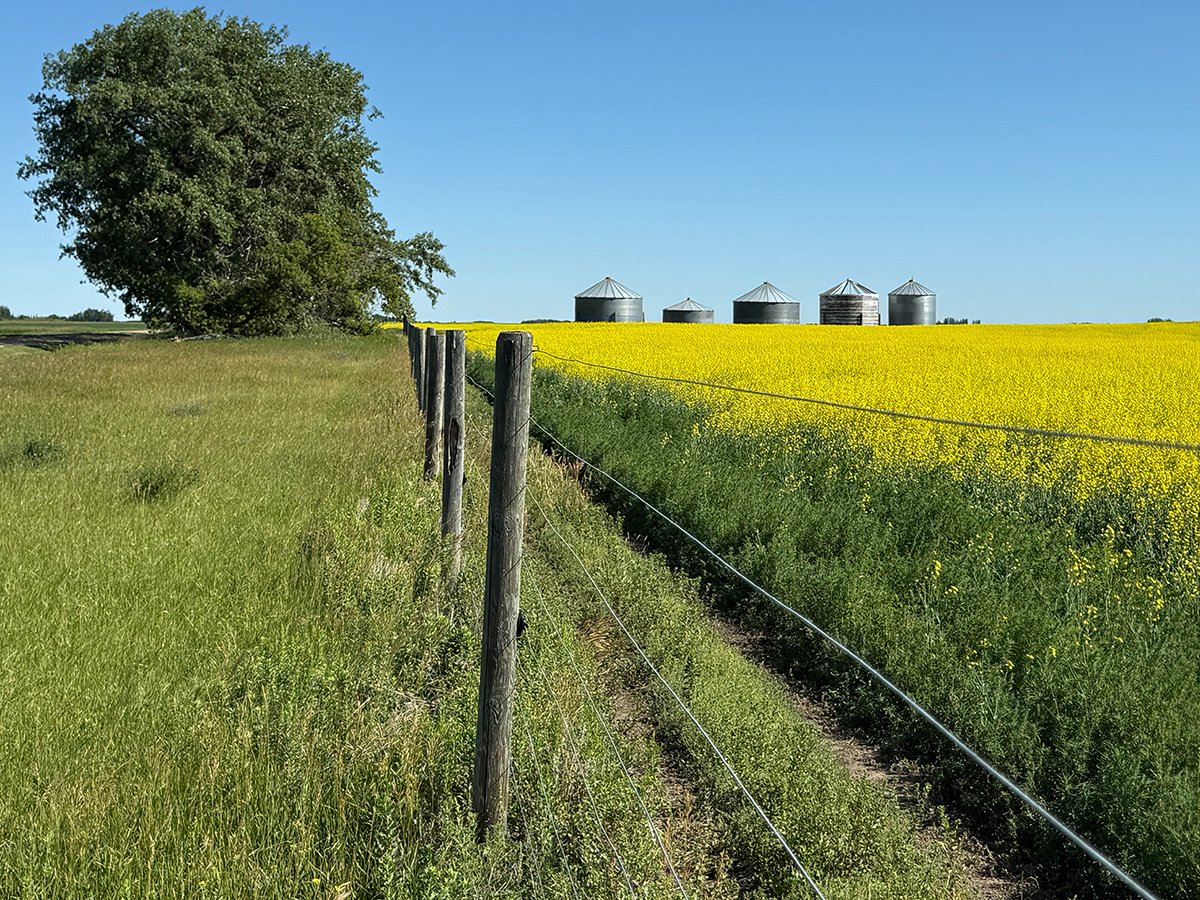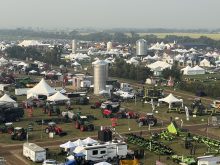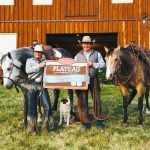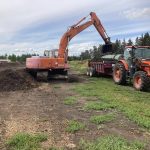King wheat
The essays of Paul Orsak and Stewart Wells (Opinion, Aug. 3) must’ve sent chills down the spines of wheat growers across the great plains of Western Canada. Both writers presented strong points for and against the Canadian Wheat Board.
Having read several similar articles in the last while, and looking at the initial CWB prices for the upcoming crop year, I can’t help but wonder how anyone can believe that a government controlled wheat board will save the day for those farmers who prefer to grow wheat and durum over pulse crops, canola, flax, etc….
Read Also

Producers face the reality of shifting grain price expectations
Significant price shifts have occurred in various grains as compared to what was expected at the beginning of the calendar year. Crop insurance prices can be used as a base for the changes.
I will go to my grave believing that if Western Canada’s No. 1 red spring wheat and No. 1 amber durum would have been properly promoted, wheat would still be king in the southern part of the Prairies.
For years now, dairy producers for example have run television advertising campaigns in a concerted effort to advertise their end products. Kellogg’s, Robin Hood, Pillsbury and other food processors and millers advertise their cereals in every media form available to them.
Yet never once do I recall seeing a television ad that would have educated consumers of the advantages of using Western Canada’s premium high protein grains and flours. Where was the wheat board?
The CWB has two mandates: to provide prairie farmers with top prices for their cereal grains; and to provide millers with top quality wheat at competitive prices.
If for a moment we can remove federal politics and the related power struggles from the profession of buying and selling grain, prairie farmers can resume growing what fares the best in the warmer climates of Western Canada. King wheat.
– John Hamon,
Gravelbourg, Sask.
So-called vision
I must respond to Mr. (Paul) Orsak’s so-called vision in the Aug. 3, Western Producer after attending the closed meeting in Saskatoon to destroy the Canadian Wheat Board.
I first encountered Mr. Orsak when he wore the hat of the Palliser Wheat Growers and was going around telling everyone we are growing a “Cadillac wheat and we should be growing a Chevrolet wheat,” we should have inland terminals and get rid of the Crow Rate and that this would bring in a new era in Canada.
He moved into the Western (Canadian) Wheat Growers (Association) whose sole purpose was getting rid of the CWB. None of the other important issues favouring farmers were mentioned….
Now I see he is chair of Grain Vision Inc. Excuse me as I try to keep up to speed on all of these groups that pop up.
Many farmers that delivered their grain to the United Grain Growers also supported the CWB. They even gave their former president, Lorne Hehn, to the board and he became the chief commissioner for many years and he did an excellent job. I know because I worked with him….
Mr. Orsak goes on to say entrepreneurs and farmers must be given the opportunity to develop and take advantage of new markets for wheat and barley and then he uses as an example a small organic baker in San Francisco.
The CWB works with producers like this all the time. You don’t dismantle a worldwide single desk seller because there is a small market in a bakery in San Francisco.
As well, the CWB has had a deal with one of the largest bakeries in the U.K. with the Warburton wheat program.
He goes on to say “sadly, research in new wheat and barley varieties fall far behind other crops.” What an insult to the good work of our plant breeders. Obviously he is preoccupied in wearing all of his other hats and hasn’t had time to put on his farmer’s hat and check all the new varieties that are brought out every year.
Examples are the new white wheat, the new winter wheat, Navigator durum and many others that the CWB has test marketed and is marketing. He then says, “this is one of the reasons why the production of wheat and barley in Western Canada has declined.”
Give me a break. It is low prices, high input costs and other countries with government subsidies that determine farmers’ lack of profit.
If Mr. Orsak does not know these simple facts, it will be difficult for him to have a “Grain Vision.”
– Avery Sahl,
Mossbank, Sask.
Free speech
On page 7 of the Western Producer, I take particular interest each week in reading the Opinion and the Editorial Notebook, also the letters.
In fact I read WP from cover to cover every week and have done so for several years even before I became a subscriber.
Having looked forward each month to the opinion of Wendy Holm, whom I believe is one of the most clear, concise and compelling contributors, I was disappointed to find someone else’s opinion in the regular spot. So, I then began to read the editor’s notes. I was dumbfounded to read that Holm’s columns had been cancelled as a result of some people questioning the newspaper’s credibility.
Who are these people? Obviously, they are incredibly naïve or don’t read the WP thoroughly as nowhere is it mentioned that Holm is other than a journalist who writes a column stating her own opinion and that is backed up the footnotes indicating that she is an agrologist, resource economist and an author and that the opinion expressed in her column are not necessarily those of the WP.
Did Holm say at a press conference that she was a reporter for WP? Or did she merely state that she worked for WP? I cannot believe that she would say that she was a reporter because I have heard her speak on various occasions and she speaks truthfully.
If she said that she worked for WP then contrary to what you’ve said in your column that “the columnists aren’t our employees,” “our columnists file, their work is edited and they get paid,” as in my dictionary, paid is one receiving money; hired and employed, having used the services of, given work and paid, so she would not be making a false statement and in my opinion that is clear.
I don’t know why WP has not come on side of one of its valuable columnists because the credibility of WP is in no way threatened just because of some people’s disagreement with her opinions.
I cannot see anywhere this paper is biased one way or the other and I shall continue to subscribe even if I disagree at times with a column.
A journalist as well as anyone has a right to attend any legitimate function and research possibilities otherwise how are they going to form any sort of opinion?…
People can believe what they want to believe but in this democratic country let’s keep freedom of expression alive and well.
– Aggie Malm,
Lillooet, B.C.
WCE position
In the Aug. 3 “Opinion/Open Forum” article, Stewart Wells, president of the National Farmers Union, states that “Cargill, Bunge, Louis-Dreyfus, ADM, James Richardson International, Agricore United and Saskatchewan Wheat Pool were all represented at Strahl’s closed-door meeting in Saskatoon by Will Hill, senior vice-president of the WCE.”
In the Aug. 17 article “Grain companies had ear at planning session,” he also states “… that grain companies were represented at the meeting through … and the WCE …”.
Winnipeg Commodity Exchange Inc. would like to clarify that the exchange does not represent grain companies or any other single group of shareholders or market participants. WCE is an independent futures exchange that provides risk management and price discovery vehicles for farmers, grain companies, grain merchants, processors and investors.
A full list of registered participants can be found on the WCE website at www.wce.ca.
WCE is a for-profit share capital corporation, responsible to its shareholders through its board of directors and to the public, through its regulatory body, the Manitoba Securities Commission. Of the 13 WCE directors, the majority are not affiliated with grain companies. Three of the directors are independent directors, including one farmer, and the chairman of the board is an independent director.
In addition, the majority of exchange shares are held by non-grain company shareholders.
– M. J. Gagne,
President and CEO,
Winnipeg Commodity
Exchange,
Winnipeg, Man.
Farmers’ decision
Canada was a democratic country. Now our prime minister, our minister of agriculture, along with his parliamentary secretary, Mr. (David) Anderson, are all hell bent on finishing a farmers’ organization without allowing farmers a say.
They invited 25 individuals, including members of grain companies, representatives of the small group (of) western grain growers and a few others against the wheat board to a closed-door meeting to destroy the Canadian Wheat Board.
Laws of our land say any changes in the board must be made by farmers, but the prime minister, the minister of agriculture and his parliamentary secretary say that they, the farmers, have no right to vote on their own affairs. Does this sound like democracy? It’s a lot more like dictatorship.
If we lose the CWB, the U.S. grain companies will run our lives more than ever.
Memories of the old grain exchange are still clear in the minds of many of our oldtimers. At harvest, grain was 25 cents per bushel when farmers had to sell to pay bills. It went higher in the spring, especially if farmers had to buy seed grain and had no wheat.
Without the wheat board, whose grain do you think the U.S. companies would sell first, Canadian or U.S. grain?
There is nothing wrong with changes only if decided by the majority of farmers.
If you have concerns about these undemocratic plans, inform the prime minister, the minister of agriculture and your member of Parliament by fax, e-mail, letter or phone now.
Rural Western Canada should be treated with a little respect. All members of Parliament should respect farmers’ rights to democracy and should pass a resolution to give farmers a vote on the future of the CWB.
The story the three culprits are spreading about farmers voting on the CWB in the past election is a far cry from common sense. Let them know.
– Roy Nelson,
Glentworth, Sask.
Lovely lawns
We enjoy your column. “Seeking farm equipment Nirvana” (Editorial Notebook, July 13) was one we could identify with.
When I was growing up, before hydrostatic variable speed ride-on mowers and evenly manicured lawns, our prairie wool’s first mowing co-incided with the start of haying season. The lawn around the house was the equipment test area before heading to the field.
No room for dull sections when cutting that wiry stuff!
That has all changed. Now farm lawns are showcase material for garden magazine articles; fertilized, watered with sprinklers on timers and cut to precision golf course length.
We have a large farm lawn. With the wet 2006 spring, mowing started earlier than usual.
Halfway through the first pass, our mower started to miss – possibly because of the lack of maintenance described in your column.
An overheated coil came to mind first but the John Deere parts man assured me it was due to a key-sized $78 igniter. Common problem on those mowers, he says.
After installation, the mower still quit after going about 20 feet. I hauled it over to a local mechanic. Of course, it worked flawlessly for him, even cutting part of his own lawn with it. I mumbled apologies for taking up his time and took it home.
It ran at least 50 feet before stopping again. By this time, the lawn is getting out of hand, according to my wife’s standards. Two local boys are hired to custom mow the lawn. This was getting expensive, so I hauled our mower to a “specialist.”
After locating a plugged fuel line and filter and tune-up, it has run fine ever since.
Satisfaction does come from a properly maintained lawnmower and the return of “relative” marital bliss.
– Tom Brown,
Turtleford, Sask.
Farms and fishes
News of the recent federal program for prairie farmers has drawn skeptical reviews in Newfoundland, where fishing communities have been devastated since even before the cod moratorium of 1992.
But farmers and fisher people need to realize that they are in much the same boat.
The options apparently offered in the government package have a dismally familiar ring in both regions. What business plan can hope to boost revenues from farming or fishing in a marketplace dominated by giant global corporations that offer ridiculously low take-it-or-leave-it prices?
This spring in Newfoundland the price for crab dropped to 92 cents a pound, when even at the starting price of $1.08 it was barely worth taking the boat out to fish.
And “skills training”? Few occupations require more skills – and dogged determination – than farming or fishing, but the global market assigns them zero value and our governments likewise.
The much-touted skills training option is a dead-end road that continues to fail rural communities everywhere.
One Newfoundland editor questioned whether Ottawa had overseen the annihilation of prairie fields as it did the commercial extinction of the cod stocks.
Well, that’s actually a pretty good description of what organic canola growers have seen as genetically modified varieties – developed with the government’s blessing and collusion – massively contaminated their fields.
And it seems likely that the agribusiness corporations and their government buddies are just waiting for their chance to do the same with wheat and other crops.
This latest farm aid package is one more cynical gesture that demonstrates the contempt of powerful elites who have never driven a combine, hauled a net or pitched manure.
The hypocrisy is especially galling at a time when that same government is moving to destroy the bargaining power of the Canadian Wheat Board, which still provides farmers with a measure of equity and market clout.
People who farm share much in common with people who fish.
The real problem is the power of those who rake in profits from the shameless exploitation of people, land and sea.
– Helen Forsey,
Biscayan Cove, Newfoundland






![Protesters crowd a street carrying signs that read, "Global warming real. In other news, water is wet," and "Stop denying the [blue painted pic of the Earth] is dying."](https://static.producer.com/wp-content/uploads/2025/07/29145152/158171_web1_2019-10-18T222818Z_1221762151_RC14C26A65A0_RTRMADP_3_CLIMATE-CHANGE-THUNBERG-1200-220x165.jpg)








